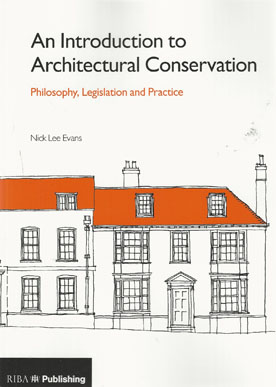
There are over half a million listed buildings in Britain, conservation areas can be found in every borough, and a large proportion of our housing stock pre-dates 1914. So, whether in extending a listed house, reordering a local church, or converting an historic warehouse, most architects will work with historic buildings at some point in their career – even if they are not a specialist conservation architect.
An Introduction to Architectural Conservation aims to introduce non-specialist architects to the principles behind legislation concerning historic buildings. It will help them understand the practicalities of this legislation, the aims and objectives of Conservation Offices, Statutory Amenity Societies and other guardians of our heritage. With these skills, readers can advise clients more accurately, make successful listed building applications, and ensure their interventions are sensitive, appropriate and effective.
An Introduction to Architectural Conservation is also a practical guide to good working practice: taking readers through the process of preparing a listed building application, preparing a suitable tender package and administering the contract.
Containing an array of attractive and informative hand-drawn illustrations, An Introduction to Architectural Conservation will prove invaluable for architects who occasionally work on listed buildings and who may not yet be accredited. It is also an ideal source of reference for architects with existing specialist knowledge of the field.